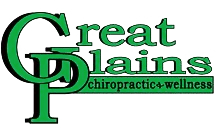At Great Plains Chiropractic and Wellness our purpose is to check, educate, and adjust as many families as possible toward optimal health through natural chiropractic care. Dr. Mark Hardwick and Dr. Mitchell Jacobs commit several hours every week to reviewing the most recent research to ensure that Great Plains Chiropractic and Wellness always provides the highest standards of care. Here you will find research on Childhood Ailments. Should you have any questions or concerns please feel free to contact our office.
“The doctor of the future will give no medicine but will interest his patients in the care of the human frame, in diet and in the cause and prevention of disease.” –Thomas Edison
Research Ties Vertebral Subluxation to Common Childhood Ailments
Below you will find a sample of the research linking vertebral subluxations and nerve interference with specific childhood ailments.
Ear Infection

Investigators evaluated 46 children under the age of five with ear infections. A full 93% recovered within 10 days of chiropractic care ( J Manipulative Physiol Ther 1996; 19:169-77). Another study looked at 5 children with recurrent middle ear infections who had been receiving medical treatment for at least six months, but had failed to recover. All the children improved with no more than five visits to their chiropractor (J Clin Chir Ped 1996; 1:66).
Colic
In one survey of 132 parents of infants with colic, 91% reported that their babies improved after an average of two to three adjustments (Eur J Chiropr 1985; 33:264-5). Another study of 316 babies with colic found that 94% benefited from chiropractic care (J Manipulative Physiol Ther 1989; 12:281-8).
Asthma
One experiment enrolled 81 children with asthma. After two months of chiropractic care, 90% of subjects showed a significantly improved quality of life (J Vertebral sublux Res 1997; 1:41-8). And 76.5% of asthma patients in another survey reported benefiting from chiropractic (Bull Eur Chir Union 1978; 26:17-34).
ADHD
One study conducted at Mississippi State University compared chiropractic care to placebo treatment in seven youngsters with attention problems. Five of the patients showed improved behavioural scores. The report concluded that, “chiropractic manipulation (adjustment) has the potential to become an important non-drug intervention for children with hyperactivity” (J Manipulative Physiol Ther 1989; 12:353).
The relationship between intensity of chiropractic care and the incidence of childhood diseases. Rose-Aymon S, Aymon M. Prochaska-Moss G, Moss R, Rebne R, Nielsen K. Journal of Chiropractic Research, 1989 (Spring): 70-77.
This was a pilot study to determine if a relationship existed between the incidence of childhood diseases and intensity of chiropractic care. The results showed that intensive chiropractic care (i.e. more than seven visits per year and more than one year of care) increased resistance to the common childhood diseases.
A comparative study of the health status of children raised under the health care models of chiropractic and allopathic medicine. Van Breda, WM and Van Breda JM Journal of Chiropractic Research Summer 1989.
One hundred chiropractors and one hundred pediatricians were surveyed and asked about the health of their own children.
Lower antibiotic use and lower incidence of disease, especially ear infections, was reported in the “chiropractic” children. If the “chiropractic” children did get measles, rubella or mumps it was reported that the diseases were quite mild compared to those exhibited by their classmates.
Absence of T-cells, immune dysfunction, has colds all the time. International Chiropractic Pediatric Association Newsletter. November 1996
A male child, age 5 diagnosed with malformation of the cervical spine and severe scoliosis, was also was not vocalizing well, had an absence of T-cells, exhibited immune dysfunction and had colds all the time. Surgery had been considered to correct skull positioning.
Utilizing the infant toggle headpiece, the Atlas was adjusted ASL. The child was medically reevaluated and he was now normal. Six months later his vocabulary was normal, his head position was normal and there were no colds evident during these months. Scoliosis was greatly reduced.
For Your Health,
Dr. Mark Hardwick and Dr. Mitchell Jacobs
